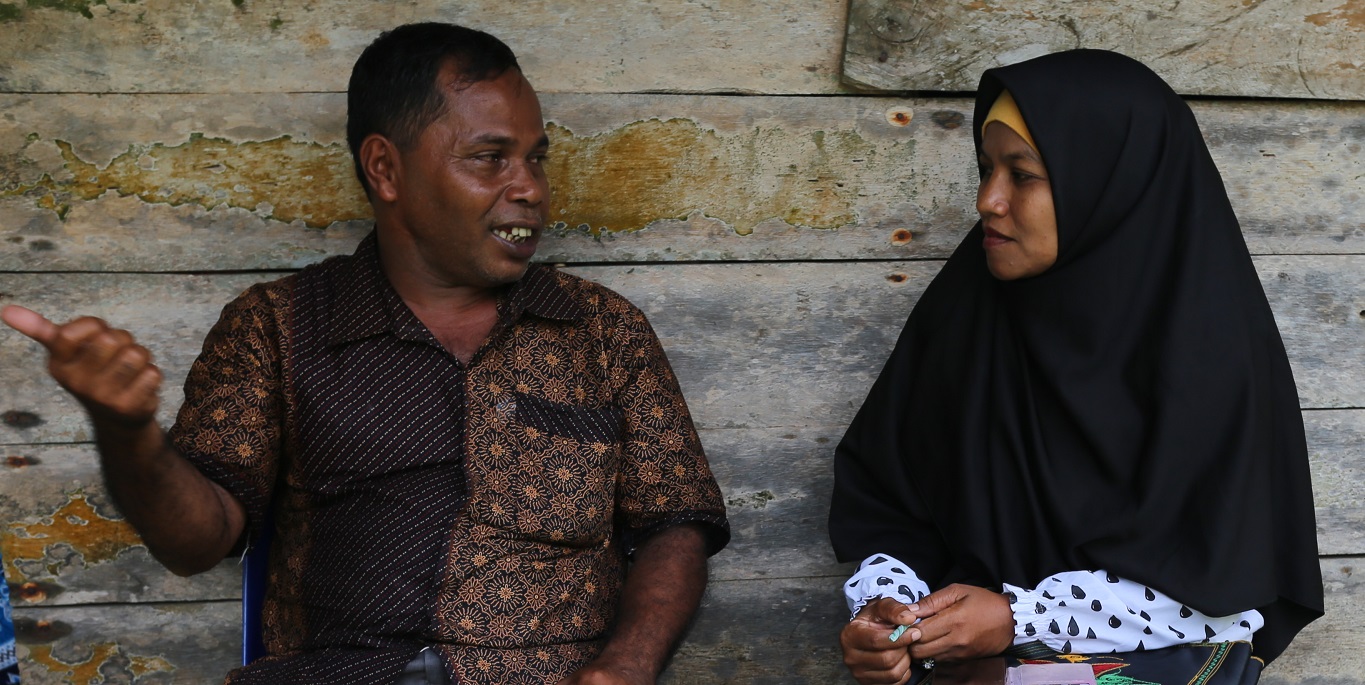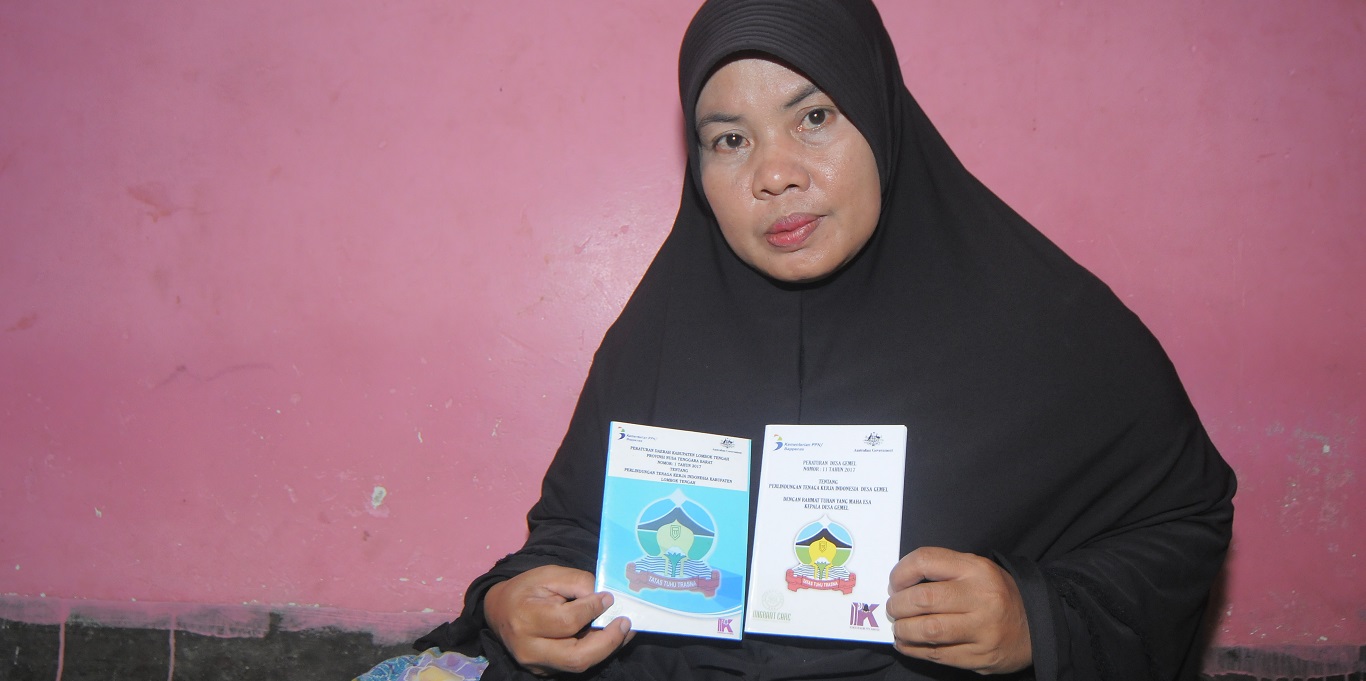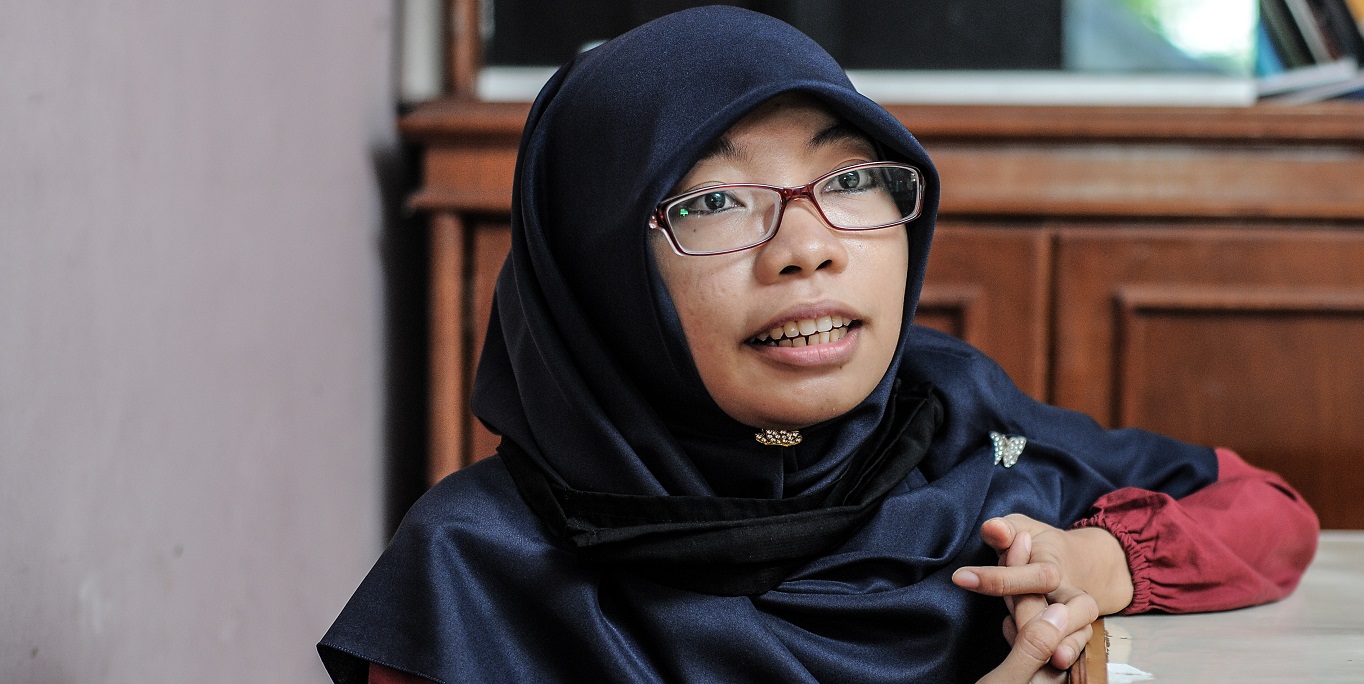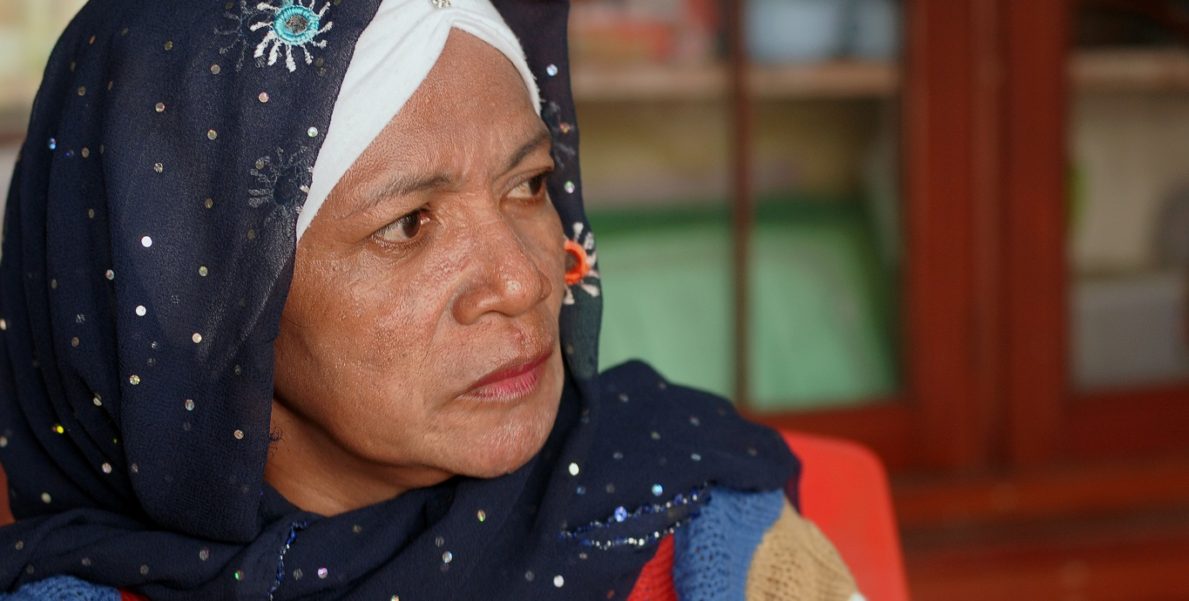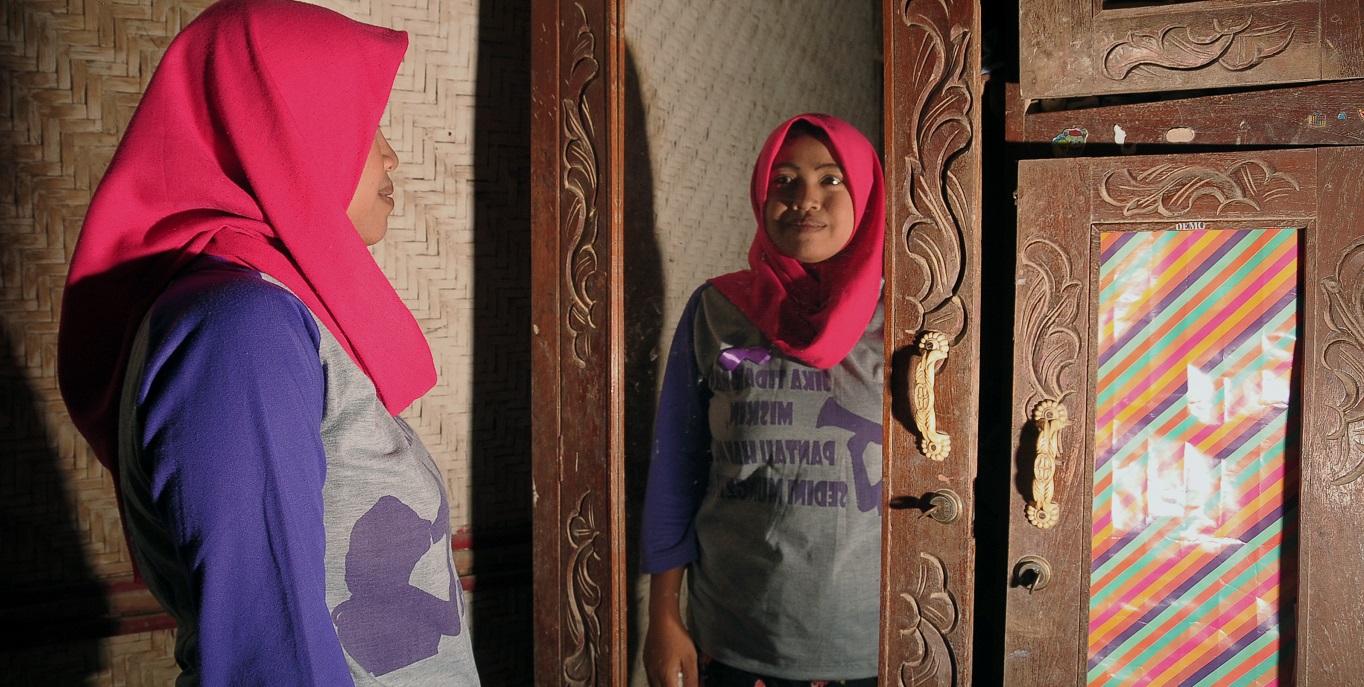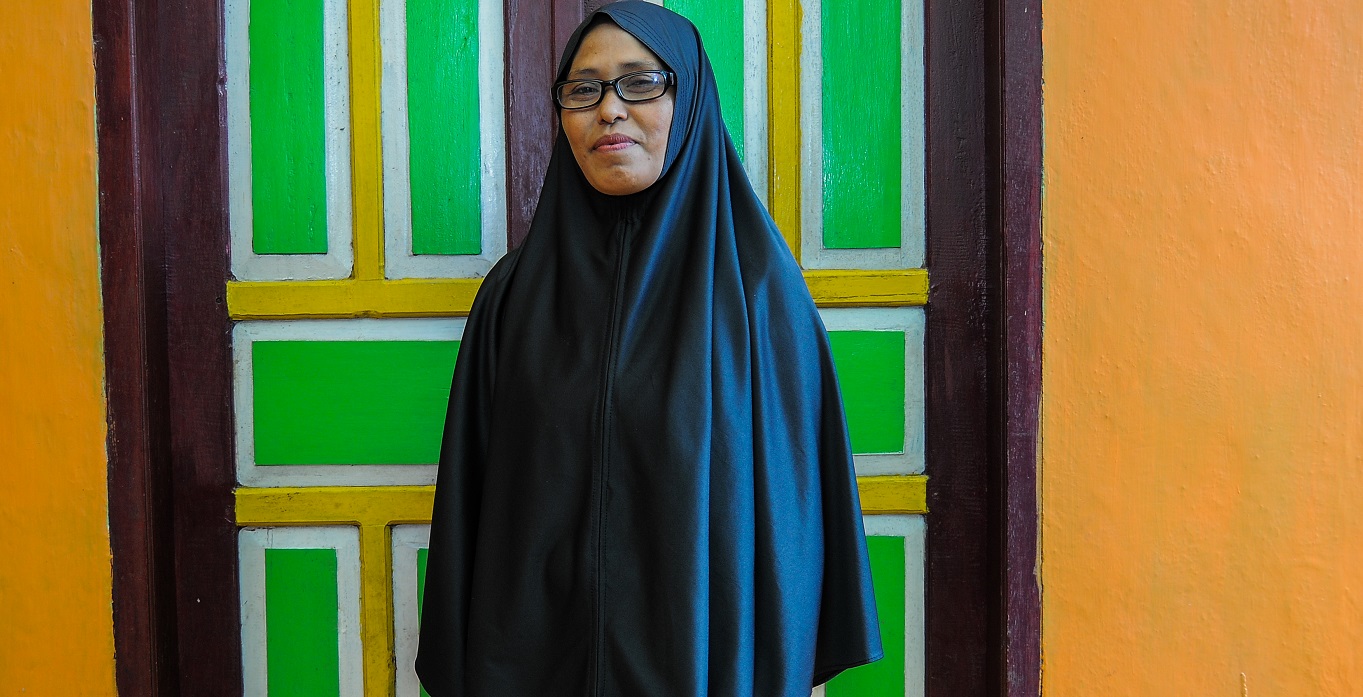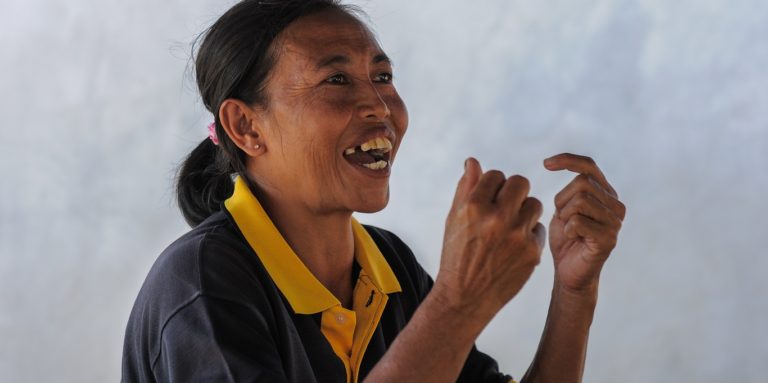Stories
Constituent Group Supported by LPP Bone Works with Village Officers in Handling Community’s Issues
30 December 2016Penulis: admin
Ria comes from the coast of Bonrae and, at a glance, seems like an ordinary businesswoman working in the fish processing industry. But in reality, in her everyday life, she is anything but ordinary. She has followed up several times on complaints and reports of domestic violence against women.
“I normally go for the report on the check-up conducted by the doctor first,” said Ria, who is also a member of the LPP Bone constituency. “Around here there are a lot of domestic violence cases.”
Previously, victims in Bonrae didn’t know where to go and whom to tell. Furthermore, they would feel embarrassed about bringing a domestic problem to the attention of officials at the Sub-district or village office. “But now, the women know there’s a representative of LPP Bone in their village to whom they can file their report.”
Ros, a member of the constituent group in the Watu village has a different story. This one revolves around the distribution of subsidised rice in her village.
“There were many people who were entitled to get their quota but did not receive it,” she explained. “So we filed a report to the village chief. We told him that there were members of our community who were eligible to receive the rice but couldn’t get it because they didn’t have their ‘Kartu Perlindungan Sosial’ (social security card). Now it’s already settled. The rice has been distributed. What’s more, we found out we could return the rice containers and ask for new ones if we found bugs in them. We used to just put up with it,” she laughed.
In her village, Ros serves as the fund manager for Pamasse Credit Union which was set up by LPP Bone and provides loans to the poor so they can start a business.
“There are seven groups with 67 members in Watu and the amount of money in circulation each month is approximately IDR 290 million. So far, everybody has repaid their loans on time. We keep the money circulating within the community so that all businesses continue to run and people are not unemployed. Most of them can be found selling sembako – the nine basic foodstuffs, i.e. sugar, rice, etc. in the market.”
Before disbursing a loan, it is important to conduct a check to be sure that the borrower actually does have a business. The group leader has given trainings on managing funds.
“Once approved, we invite each applicant to a meeting at the village chief’s house. He is very keen to be actively involved, so we coordinate with him a lot,” said Ros. “Before the subsidised rice issue, our problem was with public sanitation. Strict rules were applied throughout the village: disposing of rubbish and sewage in the river was strictly prohibited. So the community advocated for public facilities. Now, there are ten toilets available in our village.”
The members of the constituency established by LPP Bone have routine meetings schedule. These are for more than just sharing information and tips on how to conduct advocacy on issues. Indeed, these members now see each other as good friends. For example, Ros and Eda often ride together on a motorcycle when they are visiting one of their target villages.
As they go about their activities, these constituents look upon the government as their partner in bringing about change. They help the Village Chief with strengthening the group, mapping the village’s strengths and weaknesses, as well as identifying the poor members of the community and school dropouts.
“We are establishing communications between the local authorities and the community. For example, if we need to build more public toilets for the village and the expense – which might be IDR 5 million – could be reduced to as little as IDR 3 million if we have builders in the village who could help with the construction. When the authorities only have limited funds, we find other ways for the community to help – maybe by donating labour, building materials and such like. We’re creating synergy,” explained Ros.
Tsanawiyah from the group in Makamase has also established synergy with the government office in her village when revising the list of beneficiaries for the subsidised rice program.
“I invited the local chief to come with me and see for himself. There are people who are still sleeping in shacks; why aren’t they receiving the rice?” asked Tsanawiyah. “The local chief witnessed it for himself, and then he updated the list. However, it’s more difficult with the direct cash aid program (Bantuan Langsung Tunai) since it comes directly from central government. So it takes time to update it.”
Ratna, Director of LPP Bone, finds identifying the next target area for the establishment of a new group of constituents to be a unique challenge. She deliberately chooses the most remote areas which are the most difficult to access. “We look for the most isolated villages that are hidden deep in the mountains,” she said. “Because we believe these are the most difficult and deprived villages, we think that we need to be advocating in those places.”
Hasanuddin lives in Malusetasi which is one of the most difficult villages to gain access to. This is why it almost never benefits from any intervention programs from the government or, indeed, from any other organisation.
“Yes. At first, they were wary of working in groups and did not want to attend trainings,” explained Ratna. “Early on, we were conducting an audit from Jakarta right after the training. So we gave them a call and asked them about it. But since they didn’t know anyone in Jakarta, they immediately hung up the phone! Afterwards, they didn’t want to come because they were too afraid!” she laughed.
But the continuous support from LPP Bone enabled Hasanuddin and his group to submit a proposal to the Agriculture Office requesting assistance in the form of a hand tractor for the people in his village who are mostly farmers.
“It turns out working in a group can be useful. Everyone can reap the benefits from it now that we have joint use of the hand tractor,” said Hasanuddin.
LPP Bone is one of the BaKTI partners which is supported by the MAMPU Program. The focus of BaKTI and its partners is to establish good cooperation with the local parliament to resolve issues related to MAMPU’s five overall themes, which are: social protection, women’s access to suitable work, the protection of migrant workers, prioritising reproductive health, and dealing with violence against women.



